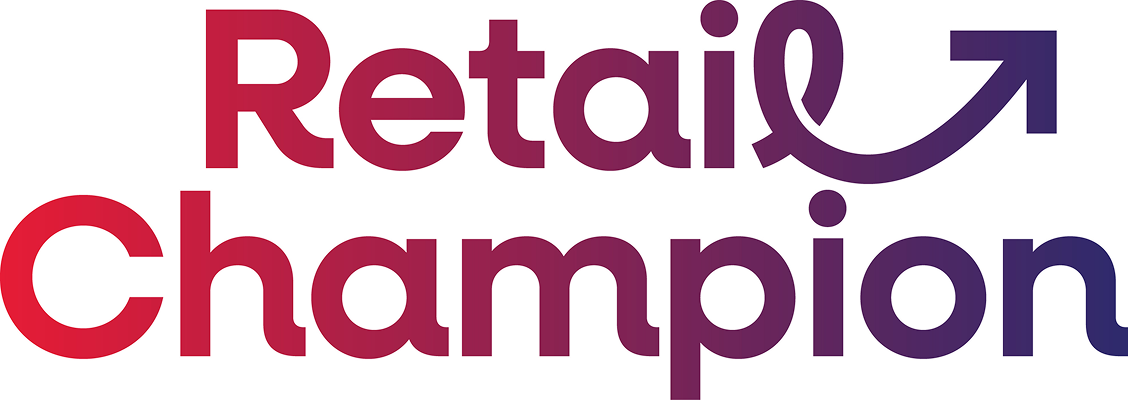
By Steph Briggs, SEO Expert
SEO. Three little letters that can either feel like a magical growth lever or a complete mystery wrapped in a Google update. So, let’s break it down without the jargon or the 96-slide webinar.
At The Retail Champion, we believe retailers of all sizes, from bricks-and-mortar independents to fast-growth eCommerce brands deserve a fighting chance at being found online. That’s where SEO comes in.
First Things First: What Does SEO Stand For?
SEO = Search Engine Optimisation.
In simple terms, it’s the process of improving your website so it ranks higher on Google (and other search engines, but let’s be honest — mostly Google). Higher ranking = more visibility. More visibility = more clicks, more customers, and more sales.
It’s not just for the techy types or big brands with bottomless budgets. Done right, SEO works wonders for independent retailers, too.
What Is a Keyword (and Why Should I Care)?
A keyword is the word or phrase your potential customer types into Google when they’re looking for something. Think:
- “eco friendly gift shop near me”
- “best paint for upcycling furniture”
- “bridal accessories Edinburgh”
By understanding and using the right keywords in your website copy, product descriptions, meta data and blogs, you help Google understand what you sell and who you sell it to — so it can show your site to the right people at the right time.
No keywords? No Google love.
What Are the 4 Pillars of SEO?
Let’s keep this as short as possible:
- Technical SEO – Is your site healthy? Mobile-friendly? Fast to load? No broken links? This is your website’s foundation.
- On-Page SEO – Keywords, page titles, image tags and headings, basically everything Google reads on your page.
- Content – Blogs, FAQs, category descriptions, useful content that helps your customers and tells search engines you know your stuff.
- Off-Page SEO – Backlinks (when other websites link to yours), reviews, press features, your site’s reputation around the web.
Get all four working in harmony, and you’ll start climbing.
What Are the 3 C’s of SEO?
The 3 C’s help guide a great SEO strategy:
- Content – Google wants useful, relevant, fresh content that answers searchers’ questions. No copy-and-paste, no keyword stuffing. Think quality over quantity — your blog or product page should help, not just sell.
- Code – The tech side: making sure your website is structured so search engines can crawl and index it properly. This includes metadata, schema markup, clean HTML, and fast load times. Good code is like good plumbing — invisible, but essential.
- Credibility – Also known as E-E-A-T (Experience, Expertise, Authority, Trust). It’s about being seen as a reliable source. This means backlinks from reputable websites, good reviews, author bios, and keeping your content factually accurate.
Why does it matter? Because Google wants to serve users the best result. So, you need to prove you’re worth it — not just once, but consistently. Think of SEO as building your online reputation, brick by brick. And those bricks? They better be sturdy and well laid.
How Do I Improve My SEO for My Shopify Store?
Great news — Shopify is pretty SEO-friendly. But to really shine, here’s what you can do:
- Optimise your product titles and descriptions with relevant keywords.
- Write unique meta titles and descriptions for every page.
- Use ALT tags on your images (helps both SEO and accessibility).
- Start a blog to answer common customer questions.
- Structure your navigation clearly so both users and Google can find their way around.
- Use Shopify apps wisely — too many can slow your site down.
And don’t forget to submit your sitemap to Google Search Console!
What Are the 4 Types of Keywords in SEO?
Let’s use the example of a shoe shop:
- Short-tail keywords: Broad terms like “shoes” — high volume, high competition, low intent.
- Long-tail keywords: More specific, like “women’s waterproof hiking boots size 6” — lower competition, highly targeted.
- Transactional keywords: Phrases like “buy men’s running trainers online” — strong purchase intent.
- Informational keywords: Questions like “how to clean white leather trainers” — ideal for blog content that builds trust and traffic.
Smart SEO targets all of the above at different stages of your customer journey.
What Does Backlink Mean?
A backlink is when another website links to your site. Think of it like a digital vote of confidence. The more quality backlinks you have, the more authority Google believes you have — and the higher you can rank.
PR coverage, supplier listings, guest blogs, directories, and even social shares can all earn you backlinks.
What Is Google SERP?
SERP = Search Engine Results Page. That’s what you see after you Google something.
The goal? To appear as close to the top of Page 1 as possible — ideally with rich features like:
- Product listings
- FAQ dropdowns
- Maps (for local SEO)
- Review stars
- Snippets
All of these boost your visibility and click-through rate.
How Do I Get My Website to Show Up on Google?
Google needs to know your site exists — and that it’s worth showing. Here’s how:
- Submit your site to Google Search Console so Google can crawl and index it.
- Use keywords your audience is actually searching for — in titles, descriptions, and page content.
- Add metadata (titles and descriptions that appear in search results).
- Use internal links to help users and Google navigate your site.
- Ensure your site is mobile-friendly and loads fast.
- Use schema markup (structured data) to help Google understand your content.
- Optimise your Google Business Profile for local searches.
- Build backlinks from credible sources.
- Keep content fresh — regularly update blogs, FAQs, and product descriptions.
Your website should be your best salesman: it works 24/7, never takes a break, doesn’t phone in sick, and reaches people globally. But even the best salesman can’t perform if no one sees them — so focus on SEO to put them in front of the right audience.
Why SEO Beats Social Media for Long-Term Growth
Don’t get us wrong — socials are great for engagement and community. But in terms of longevity? SEO is the gift that keeps on giving.
Here’s why it should be your priority:
- Evergreen traffic – A blog post you write today can bring in customers for years.
- High intent – People searching on Google are actively looking to buy. That’s powerful.
- Less algorithm chaos – SEO doesn’t rely on daily dancing or viral trends.
- Better ROI over time – While social content disappears fast, SEO builds momentum.
- Search is where people go to shop – If your products and services aren’t visible there, you’re missing warm leads.
Social media is the shop window. SEO is the sat nav that gets people to your door.
How Long Does It Take for SEO to Take Effect?
Ah, the million-pound question. The truth? SEO is a long game.
You might see small improvements in 3–6 months, but real, sustainable results often take 6–12 months (especially in competitive markets). Stick with it, it’s worth the wait.
Are Blogs Still Good for SEO?
Yes! Blogs are brilliant for SEO. They:
- Help you rank for informational keywords.
- Showcase your expertise and build trust.
- Give Google fresh content to crawl.
- Increase time spent on site (good for rankings).
Just make sure they’re well-written, genuinely helpful, and structured properly with keywords and headings.
How Do I Know If SEO Is Working?
You’ll know it’s working when:
- Your traffic from search engines is going up.
- You’re ranking higher for your target keywords.
- You’re getting more leads or sales from organic search.
Use tools like Google Analytics and Google Search Console to track progress.
Is Paying Someone to Do SEO Worth It?
If they know what they’re doing — absolutely. SEO done well saves time, increases traffic, and boosts sales. It’s like hiring a digital architect to build your shopfront on the busiest street online.
How Much Does It Cost to Outsource SEO?
It depends on your needs, but here’s a rough guide:
- One-off audits or strategy: £500+
- Monthly retainers: £500–£2,000+
- Content and technical support: add-ons vary
The best SEO pros will tailor their services to your business — and show you exactly what you’re getting.
Final Thoughts (aka, Stop Putting SEO Off)
Whether you’re a boutique brand, Shopify seller, or high street stalwart — SEO isn’t optional. It’s your shop sign, your sales rep, and your credibility, all wrapped into one.
The good news? You don’t have to do it alone.
The Retail Champion helps businesses of all sizes make sense of SEO — and make it work. From keyword planning and site audits to content strategy and optimisation, we’ve got your search success covered.
Book a Discovery Call or Contact Us Today.
If you’ve enjoyed reading this blog you may also like;
“Is Blogging Still Worthwhile in 2025”
Or
Silent Selling: The Art of Converting Customers Online Without Saying a Word


